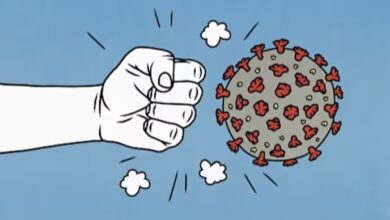Responding to hereditary hair loss
“Your hair is your crowning glory,” people often comment. But what happens when androgenetic alopecia, a kind of inherited hair loss, starts to thin down the crown? The good news is that there are many methods accessible to handle this problem, even if there isn’t a surefire answer.
Losing hair may be quite concerning, particularly if it is inherited from your family. The good news is that professionals in the sector have provided priceless and really useful tips on how to handle this and regain your confidence. Let’s explore their knowledge.
Dr. Charu Sharma, co-founder and director of dermatology at Cureskin and a known expert in hair and scalp health, believes that in order to properly battle genetic hair loss, it is essential to understand what causes it. The most prevalent genetic hair loss condition, androgenetic alopecia, is generally brought on by hormonal and genetic causes. It affects both sexes differently in terms of hair thinning and balding patterns, affecting both men and women.
Hereditary hair loss is a slow process, said Dr. Sharma. It often begins with a widening part or receding hairline and may eventually develop to more severe hair loss. This knowledge is essential for solving the problem quickly and successfully.
Sonia Sinha, a clinical dietician and the creator of FitFoody.in, asserts that nutrition and hair health are strongly related. For strong, healthy hair to last, a balanced diet full of important nutrients is needed. In order to encourage hair development, she highlights the value of protein, iron, biotin, and vitamins A and D.
Lean meats, fish, eggs, leafy greens, pulse legumes, and nuts are other things Sinha advises include in your diet. She continues, “Supplements can also be helpful if you have trouble getting all of the nutrition you need from food alone, but it’s important to speak with a healthcare provider before starting any supplements.”
Dr. Sharma said, “Topical treatments, drugs, and healthy lifestyle choices may make a major impact when it comes to decreasing genetic hair loss. Topical products sold over the counter that include minoxidil have shown promising benefits in promoting hair growth and halting hair loss in both men and women.
Additionally, prescription drugs like spironolactone, which is mostly used by women, and finasteride, which is primarily used by men, may be useful in inhibiting the hormones that play a major factor in hair loss in patients with androgenetic alopecia. Due to possible negative effects, these drugs should only be taken under the supervision of a medical practitioner.
An IT specialist named Krishna Murty who struggles with inherited hair loss also has some life lessons to impart. He stresses the need of holistic wellbeing, which includes a healthy diet and regular exercise. He specifically draws attention to how popular hair growth gummies are becoming among those who are experiencing hair loss. “In my search for a solution to genetic hair loss, I discovered hair growth gummies. They’re a practical and delicious complement to my daily regimen, claims Krishna. “They don’t work like a miracle, but I’ve observed that they do provide some of the vitamins and minerals that are necessary for better hair. They supplement the other treatments I’ve used, giving my fight against hair loss one more layer of defense. Krishna’s viewpoint highlights how people with genetic hair loss often look at a variety of options, including nutritional supplements like gummies, as part of their overall plan.
Manisha Chawla, a yoga instructor, cautions that stress “is a silent contributor to hair loss.” High amounts of stress may aggravate hair loss and make managing it more difficult. Chawla advises adopting stress-reduction practices like yoga, meditation, or deep breathing exercises into your regular routine.
In addition, lifestyle choices like smoking and binge drinking may hasten the thinning of hair. Your hair’s health and general wellbeing may be improved by giving up smoking and drinking less alcohol.
While there may not be a permanent solution for genetic hair loss, there are a number of expert-recommended methods that may aid in slowing the condition and perhaps even encourage hair regeneration. Understanding the root reasons, modifying your diet, looking into topical remedies, thinking about cutting-edge medical procedures, and properly managing stress are some of these strategies. These suggestions provide persons coping with this pervasive issue hope and solutions.
You’re not traveling alone on this path, Dr. Charu Sharma from Cureskin emphasizes. You may overcome genetic hair loss and gradually restore your confidence, strand by strand, with the right support and persistent resolve.







